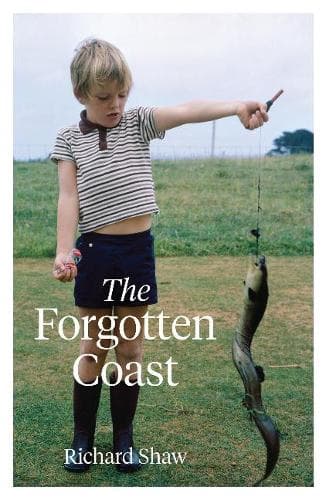Review: The Forgotten Coast
Reviewed by David Hill
Years back, Elizabeth Smither and I wrote a book about our home province of Taranaki. Around that time, there were proposals to change our mountain's name from Egmont back to Taranaki. Letters to our local paper (we reprinted several in the book) included these ‘gems’: “Why do the Maoris [sic] always get their own way?....How long before all our European heritage is gone?....Come on, you pakehas, stand up and be counted.....Taranaki is an ugly name with ugly meanings.”
Any attempt to return or acknowledge names, rights, land taken from tangata whenua still brings resentment, guilt, nastiness frothing forth. So, all commendation to Richard Shaw for this memoir, one motif of which is the injustice of growing up on Taranaki hectares confiscated from the people of Parihaka.
It's a book which records three generations of (predominantly male) forebears towards whom the Professor of Politics at Massey University feels emotions ranging from gratitude to unease. “Fathers, sons – and further back, behind those things, land, belief and belonging. That's what this book is about.”
Furthest back is Andrew, maternal great-grandfather, Irish immigrant, trooper in the Armed Constabulary who was present at the brutal invasion of Parihaka in November 1881, and was eventually rewarded with enough land to establish three farms on the fertile slopes of the book's title.
Shaw's exploration of Andrew's New Zealand life is flecked with the same range of references that quicken other sections of the book: Rachel Buchanan's study of the thriving Māori settlement is acknowledged; Owen Marshall is quoted. So are Ursula Le Guin, W H Auden, Tim Finn, a history of Taranaki rugby, many more. It puts events and people in fresh perspective; extends the implications.
After Andrew comes the author's Great-Uncle Dick. It's quite a contrast. If the former's trajectory rose to an ambivalent peak, the latter's soared early then switched to a slow, sad decline. Richard Gilhooly was an academic prodigy throughout school in New Plymouth and wanted to be a priest. Correction: was determined to be a priest. He studied in New Zealand, then in Rome (“hot weather, much mental exertion, and multitudes of flies”). He received his Doctorate at an astonishingly early age. In the same year, he contracted TB.
It took decades to kill him and Dick served with exemplary courage to the end. Shaw records his four-and-a-bit decades closely, compassionately. I say “closely,” because this is a book rich with research. Spending “hours in the company of a magnifying glass,” the author finds an 1873 Irish court record for “assault and rescue” (sic). He reads every letter he can find, produces a photo of an 1881 rugby team, an opposition motion from the House of Commons a year later. And he does it (mostly) without bogging down in the slough of names, dates and places that can beset family chroniclers.
We come to the book's third protagonist: Shaw's father Bob. It wasn't his real name and we hear why. We hear also of childhood in an orphanage, blithe assumptions regarding religious conversion, the strengths of silence. Bob Shaw was someone “who didn't take things away....he offered me a particular way of being a man”. What an excellent tribute.
So, we have a trio of stories which move from comprehension through admiration to love. They're modest in tone; don't strain after stylistic or emotional effect. They're honest, too; weigh present ignorance against self-righteous judgement of the past. And they're attentive as well as being agreeably.... well, chatty. You feel you're in a conversation with the author. You even chuckle aloud sometimes: “Mangling one's forearm in an anti-tank gun is a fairly manly thing to do.”
The Forgotten Coast offers an engaging, frequently affecting narrative and an insistently relevant set of issues. Shaw respects his people as individuals, even as he transmutes them on occasions into emblems. That's a definite achievement.
Reviewed by David Hill
